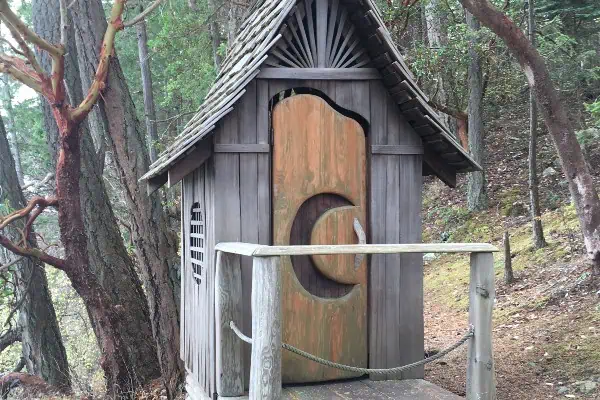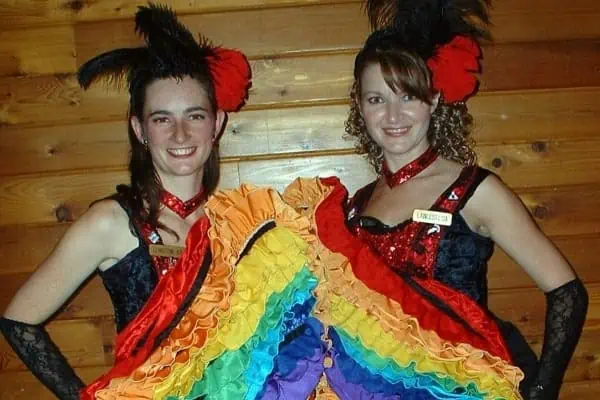My dog, Herman, once stepped between myself and a charging two-thousand-pound black Angus bull. He turned the animal back by sheer virtue of his own ferocity and unwillingness to be moved.
On another occasion, he chased off a young male grizzly bear that was stalking myself and my girlfriend as we picked morels in northern British Columbia.
He has ridden shotgun in my canoe as it rushed down the Yukon River and sat patient and quiet under my seat as we rode the subway together through downtown Toronto. He has always guarded myself and my things and has stopped two separate break and enter attempts.
He once killed a milk snake – an aggressive reptile native to Southern Ontario – with a painful, although only moderately poisonous bite, when it attempted to strike him. He snatched it up his in jaws and shook it so ferociously that it snapped in two.
When he was very small I used to take him with me on my motorcycle by tucking him into my leather jacket and zipping him up inside, so he could ride face-in against me, a fact which he seems to still recall, as he becomes excited whenever he sees a parked motorcycle to this day.
He is nearly six now, and throughout the years he has never been the perfect dog, but he has always been unfailingly loyal and brave to the point of stupidity.
And yet, despite being what one might call “a dog’s dog,” the sound of fireworks or gunfire will reduce him to a quivering, whimpering, neurotic mess, shivering and hiding his head under my arm or crawling under the bed and refusing to be moved. Recently, over the New Year’s holiday, we were accidentally outside for a walk – due to my own carelessness of the time – when the fireworks went off. His terror was so great that he ran in the bushes, dug a hole under a tree in the snow right down to the dirt, and refused to be moved. I only found him because he had a collar light, and when I did, I had to scoop him up like a baby and carry him home.
This is not an uncommon fear among dogs – after each session of fireworks, there are numerous reports among dog owners of dogs going missing – and it can be a very serious problem, causing serious anxiety, destructive behaviours or for dogs to disappear.
When frightened by loud noises, a dog can be, “disoriented for days, running and running, because they are scared… Most people with nervous dogs can expect their dogs to react quite a bit, but even calm dogs can react to loud noises,” says veteran-dog trainer Erika Rozsa-Atkinson.
Rozsa-Atkinson is the owner of the Whitehorse dog training school Canines and Company.
Owners should keep their dogs on a long leash when going out at times when triggers – fireworks, gunfire or thunderstorms – might be present, and not leave them outdoors unattended. When a dog is frightened, she says, it’s important not to comfort them (no matter how much you might want to) because this simply reinforces their belief that there is something to be afraid of.
“It’s very important that you remain calm and do not get anxious yourself,” Rozsa-Atkinson notes. “Anxious owners project their anxiety on the dog and escalate the behaviour.”
Instead, she says, you should remain relaxed and keep your pet someplace safe with you. If the dog is having serious issues, she says, such as when anxiety becomes unbearable or they are visibly suffering from such fears, an owner might want to consider mild sedatives for the duration of specific, foreseeable events, such as fireworks.
Thundershirts – a product that squeezes an anxious dog tightly in order to help reduce their anxiety – may be effective, although Rozsa-Atkinson says it is effective in only about 35 per cent of cases.
Treatment aside, preventing these panicked episodes is actually more important than dealing with them when they occur, says Rozsa-Atkinson, because it can take weeks for the dog to fully recover.
Plenty of exercise prior to an event like fireworks will help a dog cope, she notes, because a healthy, physically and mentally fit dog is better prepared to deal with stress.
So, why do some dogs react to loud, unexpected noises in such a panicked way, while others are totally non-plussed? Rozsa-Atkinson says that sometimes it is often a matter of the environment a dog encounters as a young puppy, or caused by genetic factors, but every dog is different.
“Dogs react to anything they perceive as danger. Your dog looks to you for guidance and needs to trust you,” she says.
She adds that often times dog owners go online looking for a solution to their problems, and that while often good advice can be found there, it may not work for every dog, nor be appropriate for your dog or situation.
“It’s important that people remember that dogs are living beings, not things that can be fixed by a google search,” she says.
This year’s Rendezvous fireworks are scheduled for Saturday, Feb. 22 at 8:20 pm at Shipyards Park. While this is a fun event for people, it can be terrifying for pets, so if you have a dog, please remember to keep him or her safe and comfortable this weekend.
Tips to Keep A Noise-Reactive Dog Safe and Happy
For dogs that are reactive to loud noises, such as fireworks, you can:
- not leave them unattended outside if there is a chance he may be exposed to loud noises;
- keep them on a leash when fireworks or thunderstorms are scheduled to occur;
- keep them with you, inside, in a comfortable, familiar place;
- give them a special treat to keep them busy and distracted;
- put on music or the television so they hear something other than the frightening noise;
- use Thundershirts, aroma therapy or other calming aids; and
- make sure they have regular and sufficient exercise.




